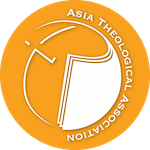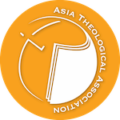Everybody loves a mango!
I remember travelling in a train in India when at one of the long station stops I saw a small boy carrying a basket of mangoes on his head. He was walking up and down the platform, trying to sell his mangoes, but despite the heat no one was buying them. In despair he sat down on the platform, peeled one of his mangoes and began to eat it as the passengers watched. His creative approach was rewarded; within minutes he’d sold every mango.
The growth and fruitfulness of the mango tree reminds me of ATA. After fifty years of creating purposeful theological communities, the Asia Theological Association has been used of the Lord to restore biblical theology to its rightful place in Asia. Evangelism is again recognised as the starting point of our mission in a troubled world, and thousands of pastors and teachers have been trained.
The founding of ATA
ATA has two taproots.
One was the fifth General Assembly of the World Evangelical Fellowship (WEF) held in Lausanne, Switzerland, in 1968, where Dr Bruce Nicholls was invited to become the theological coordinator of WEF. His first task was to set up in Asia the Theological Assistance Program (TAP) in 1969 as the theological arm of the WEF. It was based at first in New Delhi and then in Singapore, assisted by John Langlois, a lawyer from the Channel Islands, UK. and a theological graduate.
The second taproot was the Asia Pacific Congress on Evangelism in Singapore, in November, 1968. It was the Asian response to the Berlin Congress on Evangelism in 1966, which was sponsored by the Billy Graham Association. The focus was global evangelism. During the event, some 50 evangelical church leaders and theologians met to promote evangelical theological education in Asia and to define evangelical theology in the Asian context.
Dr Saphir Athyal, at that time the vice–principal of the Union Biblical Seminary in Yeotmal, India, was asked to organise a theological consultation in Singapore in 1970. During October and November 1969, he travelled extensively across Asia, meeting church leaders and theological teachers in their colleges in preparation for the consultation. His visits included Kuala Lumpur, Singapore, Manila, Hong Kong, Bangkok and Rangoon. The kairos moment had arrived.
From 4 to 7 July, 1970, 51 church and theological leaders from across Asia, along with representatives from Australasia, met in Singapore under the chairmanship of Dr Athyal.
ATA takes this consultation as its starting date, though it was not called Asia Theological Association (ATA) until four years later. While TAP contributed to the founding of ATA, we honour Dr Athyal as the one who brought together the two streams mentioned earlier, assisted by Dr Bong Ro. The latter became the Executive Secretary of ATA, a position he held for twenty years.
The delegates agreed to meet again in June 1971, and set up a TAP-Asia office in Singapore, chaired by Dr Athyal and led by Dr Bong Ro. TAP-Asia soon launched two research centres, one in Seoul, and the other in New Delhi.
Dr Han Chul-Ha of South Korea, a founding member of TAP-Asia, pioneered the Centre for Asian Theological Studies (CATS) in Seoul in 1973. This is now known as the Asia Centre for Theological Studies and Mission (ACTS), and is recognised as a leading missiological university in Korea.
Dr Bruce Nicholls and his wife Kathleen resigned their teaching posts at the Union Biblical Seminary in Yeotmal and moved to New Delhi. There they founded the Theological Research And Communication Institute (TRACI), a research community of seven scholars who became widely known for their publications. TRACI set up a publishing company called Select Books, designed for the secular market, as well as making films for national TV. As a research centre it remains active today.
In the first issue of TAP’s Theological News (May 1969) Dr Saphir Athyal wrote:
The church in Asia today is facing challenges and opportunities which in many ways are similar to those which confronted the New Testament church. Her enemies within and without strikingly resemble those of the first centuries. The forces that persecuted the early church secular and religion, whether sponsored by the state or guided by mass psychology, have their counterparts in Asia today. (New Era, New Vision, p 14)
During 1971 and 1972 the TAP-Asia staff visited colleges worldwide. Dr Athyal went to Latin America, Dr Bong Ro to Asia, John Langlois to Africa, and Bruce Nicholls to Europe and the Middle East. On 27 December, 1972, 80 delegates meet in Hong Kong for a consultation on “The Biblical Theology of Salvation.” There an Asia-wide TEE programme was launched, coordinated by Ian McCleary.
This consultation in Hong Kong saw the adoption of a new constitution and new name, the Asia Theological Association (ATA). It marked a new stage in Asian autonomy and regional theological development.
In 1975 Dr Nicholls became the director of the Theological Commission of the WEF and the term TAP was dropped. Dr Athyal continued as ATA’s acknowledged founder and leader until 1990, when he handed the reins to Dr Wilson Chow.
A new era and new vision had begun for the strong ATA mango tree.







Leave A Comment